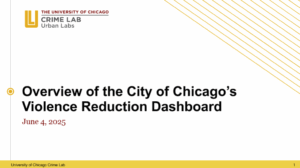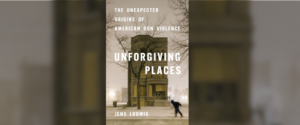Jan 2025
Valuing the benefits of reducing firearm violence in the United States
This paper estimates the monetized value of the impact of reducing firearm violence and how that value is distributed across the population.
Gun violence imposes significant costs, but the best way to quantify these costs is controversial. In line with standard practice in economics and federal directives, we use the contingent valuation method to estimate Americans’ willingness-to-pay (WTP) to reduce gun violence. Households are willing to pay an average of $744 annually for a 20% reduction in gun violence, totaling $97.6 billion nationwide. This estimate is twice as high as a recent cost-of-injury (COI) estimate, suggesting that that method, widely used in health-policy analysis, underestimates the full societal impact of gun violence. Unlike the COI metric, WTP is not strongly correlated with demographic characteristics. The benefits of reducing gun violence are more closely associated with subjective concerns than observed victimization rates.

Webinar: Overview of the City of Chicago’s Violence Reduction Dashboard
The Crime Lab hosted a webinar that explored the City of Chicago’s Violence Reduction Dashboard—a publicly available tool launched to support efforts to reduce gun violence through transparent, real-time data.

Unforgiving Places: The Unexpected Origins of American Gun Violence
Crime Lab Pritzker Director Jens Ludwig authored a book that argues the lack of progress in reducing gun violence ultimately stems from our having misunderstood the nature of the problem, and that behavioral science gives us a new way to understand – and solve – gun violence in America.

2025 End-of-Year Analysis: Chicago Crime Trends
Violent crime declined substantially in 2025 across the country, including in our home city of Chicago – which experienced 168 fewer homicides through mid-December 2025 compared to the same period last year.

Local Gun Violence Dashboards
Chicago’s Violence Reduction Dashboard, launched by the Crime Lab in 2021, is featured in a toolkit created by Everytown for Gun Safety Support Fund as a part of its Gun Violence Data Fellowship.
Latest Updates
Former NYPD Chief of Department Kenneth E. Corey Named Executive Director of the Policing Leadership Academy
CHICAGO, IL — The University of Chicago Crime Lab today announced that Kenneth E. Corey has been appointed Executive Director of its Policing Leadership Academy (PLA), a first-of-its-kind executive education program designed to help police leaders reduce gun violence and build trust in the communities they serve.

Homicide rate declines sharply in dozens of US cities, a new report shows
The AP’s Claudia Lauer speaks with Crime Lab faculty director Jens Ludwig about the declining homicide rate in cities across the United States.

What it will take to fix American policing
Host Megan McArdle speaks with former New York City police commissioner William Bratton and former NYPD chief and new Policing Leadership Academy executive director Kenneth E. Corey about their work at the Academy and the program’s goals to reduce violence and improve fairness in policing.

